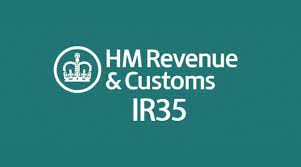HMRC’s Octagon Green investigation: One key takeaway
It’s one thing for a company to face an HMRC investigation for tax evasion – and another to face such an...
READ MORE
The latest Chancellor (Jeremy Hunt) has rolled back the proposed repeal of the IR35 reforms that had been announced by his predecessor in the September Mini Budget. Although Liz Truss had mentioned reviewing the IR35 rules during the Conservative Leadership election campaign, it was a surprise to most when then Chancellor Kwasi Kwarteng stated in his Mini-Budget that the rules would be repealed from 6 April 2023 – now normal service has resumed.

Now that the 2017 and 2021 reforms are again approved government policy, the key message for businesses who utilise off-payroll workers is that their compliance responsibilities remain. HMRC’s compliance checks in this area will, if anything, increase so effective Workforce Risk Management remains vital to protect your business. We have set out below where you should focus your attention.
Be prepared - for HMRC IR35 reviews from April 2021 (2017 for Public Sector) onwards. You will require robust policies and procedures, supporting evidence of all steps taken as well as demonstrating that reasonable care has been taken read about demonstrating reasonable care.
Protect your business – given current economic circumstances you may want to use more contractors, but if you do not have robust procedures in place to identify and assess any workers using Personal Service Companies (PSCs) and these policies are reviewed regularly, you will be at risk.
Directors and Non-Executive Directors – make sure they are all treated as deemed employees where necessary.
Self-employed contractors - you still have a risk if you engage individuals directly on a self-employed basis: check their employment status to make sure HMRC would not regard them as de facto employees.
Other contract workers - put robust PAYE/NIC due diligence processes in place for all your outsourced workforce, i.e. where your labour supply chain includes services provided by Umbrella Companies, Temporary labour employment agencies and other third parties. Make sure you review the contractual obligations each time where procuring contractors from a third-party supplier. Don’t assume that HMRC won’t pursue you if suppliers fail to operate PAYE/NIC when they should.
You can expect HMRC to focus on off-payroll labour obligations in any Employment Tax reviews they conduct, and businesses should review their policies and procedures and keep them valid. Read more here.
In our experience, around a third of the cases we have been asked to review for “Off-payroll purposes”, the worker is engaged directly – often this is because the contract should have been with the PSC but was incorrectly drafted and the counter party is the individual worker. In these cases, the responsibility for operating PAYE remains with the engager and will do so going forward. So check your contracts now.
Other relevant legislation including the Agency rules, the Construction Industry Scheme and Managed Service Company (MSC) legislation still applies. Engagers must continue to have robust labour supply chain due diligence and documentation reflecting the actual arrangements.
For example, where the MSC rules apply, this would mean that payments received by individuals providing their services through MSCs (PSCs based in/out of the UK) are subject to PAYE/NIC and this debt can potentially be transferred to third parties including the company’s directors, the MSC Provider, and in certain circumstances, other third parties i.e. you as the engager.
The off-payroll reforms were introduced to tackle widespread non-compliance with the original IR35 rules. Alongside them came the introduction of the Criminal Finances Act 2017 which introduced a corporate criminal offence for ‘failing to prevent the facilitation of tax evasion by an employee or associate’ (which includes contractors).
Having ‘reasonable prevention procedures’ in place is a defence against the potential criminal sanctions of an unlimited fine and a public record of the conviction. HMRC are focussing in this area so check your policies and processes; do they demonstrate that you have taken reasonable care to ensure that your contractors and any outsourced labour suppliers are themselves complying with the rules.